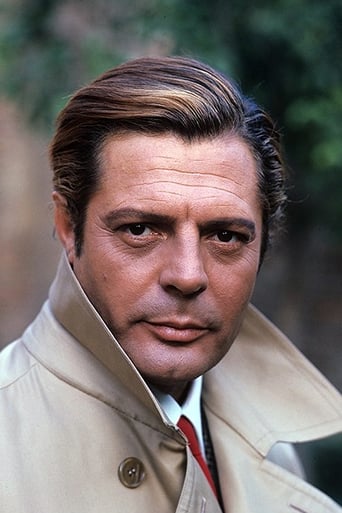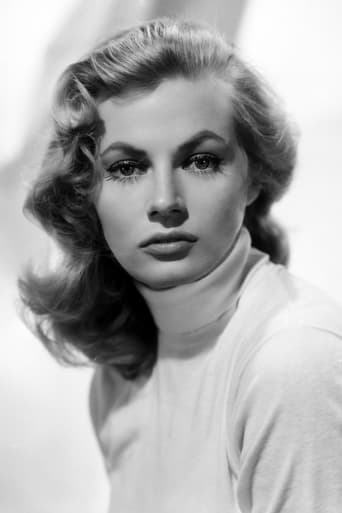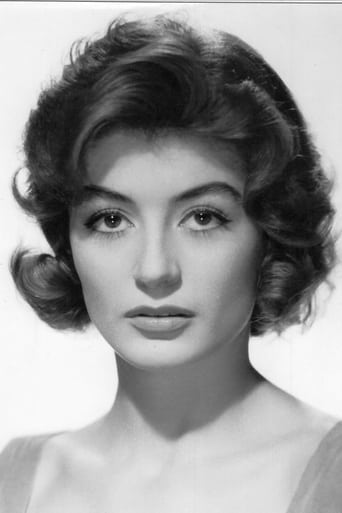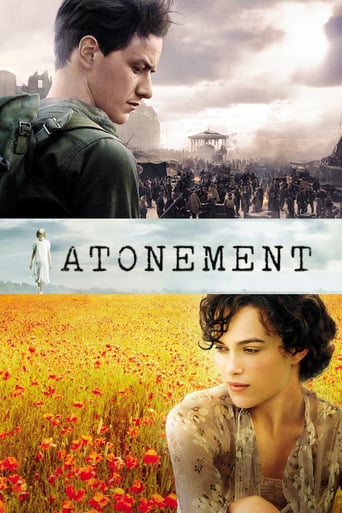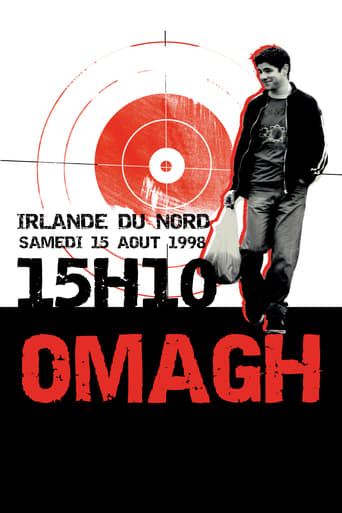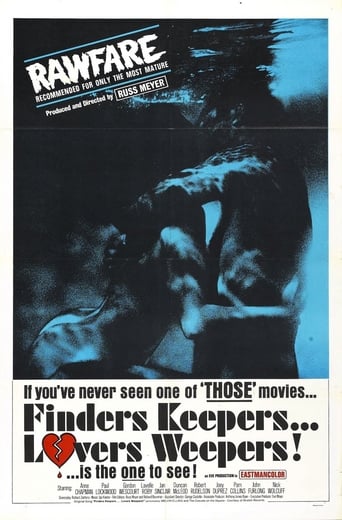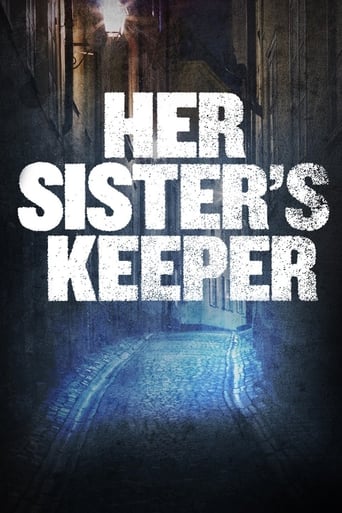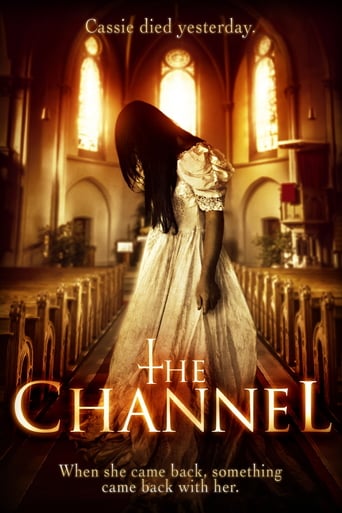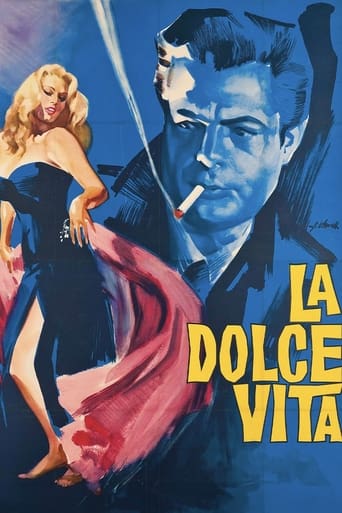

La Dolce Vita (1961)
Episodic journey of journalist Marcello who struggles to find his place in the world, torn between the allure of Rome's elite social scene and the stifling domesticity offered by his girlfriend, all the while searching for a way to become a serious writer.
Watch Trailer
Cast


Similar titles
Reviews
Once a year, get comfy in your favorite place to watch movies. Exclude yourself from the world for about 4 hours and watch La Dolce Vita. This is going to refresh your thoughts about the society and discover that since the 60' Fellini have already deconstructed millennia society so well that after watching the movie you need to give yourself one day to heal. Every year. Don't forget. And every year you'll discover more and more about ourselves as society. There's too much to be deciphered in this movie.
Society was changing fast in these few years, and this film, displaying a social sophistication virtually unknown and surely prophetic, may have been instrumental in changing it. Perhaps this is the first time the world had seen some of these characters and situations, the dizzy 60s blonde (plus the husky variant), the paparazzi, and swinging - not shown explicitly, but only thinly veiled.Journalist Marcello (Mastroianni) is on a trajectory towards nonchalant decadence, the benchmark being set at the beginning by bored socialite Anouk Aimee, who wants to do it in a prostitute's bed while being watched. This is the first section of the film and must have knocked the audience off their seats. It is also perhaps the finest and most meaningful section, notwithstanding Anita Ekberg in the Trevi fountain (it's a pity Ekberg didn't keep the kitten on her head as it was beautifully symbolic).Each section reads like a portrait of the deadly sins of moral decadence: insincerity (Aimee), superficiality (Ekberg), unreliability (his father), weakness (Steiner), insecurity (his girlfriend), and, least effectively, irrationality (the crowd at the miracle site, a long barely relevant section that the film would have been better without). Individually these things may not bring a man down, but together - the message seems to be - they are enough to erode one's resistance.Actually, the film may not be about creeping decadence at all, but simply nihilism, the inevitable response to the ultimate meaninglessness of things. In that sense, every section here is not about a sin, a failing, but about meaninglessness, the impossibility, despite our best intentions, of being what we really want.As with many Fellini films, there's too much raucousness. There are too many parties populated by insufferable characters. Fellini got carried away here and someone ought to have reined him in. Almost all of these peripheral characters are over-the-top-pretentious which gradually dissolves the realism, and, with it, our sympathy. It's always the quiet moments that work best - perhaps that's a consequence of the dubbing technique, which makes the garrulous scenes unpleasant, but when the circus backdrop falls, the sudden serenity is startling and simple gestures take on extraordinary meaning - then it becomes sublime cinema.
Fellini, Fellini, Fellini! He is Italy's most well known and celebrated filmmaker and remains a true icon of cinema to this day. Although he had already directed a few acclaimed films earlier in his career (ex: "La Strada" and "Nights of Cabiria"), it was "La dolce vita" that truly launched his career and made him such a famous filmmaker of international cinema."La dolce vita" is a film about a journalist named Marcello and one crazy week he has in Rome. It doesn't follow a basic plot structure, and is really just a series of events that lead to the memorable ending sequence.There are many memorable scenes throughout "La dolce vita". The opening with the Jesus statue attached to a helicopter, the fountain sequence with Anita Ekberg (which is perhaps the most famous), and the ending scene on the beach come to mind as highlights, but they certainly aren't the only memorable scenes in this extraordinary film.Throughout "La dolce vita", Fellini satirizes the paparazzi's obsessive nature, taking photographs at everything they see, and the world's overall obsession with gossip and celebrities. While the film manages to portray the sweet life as a very glamorous way of living, it also showcases its dark side in more dramatic moments. It's also very fun to note that the film actually invented the term paparazzi, because of the obsessive character of Paparazzo."La dolce vita" is, at times, very funny, at others nearly heartbreaking, and is always amazingly entertaining. A must-see for any fan of film.
"La dolce vita" is a drama movie in which we watch a series of stories in just a week of the life of a paparazzi journalist who lives in Rome and he just wants to find his true place in the world. We also watch him trying to become a successful writer but he has some difficulties no this which he has to surpass in order to succeed on this.I liked this movie because of the plot in which for one more time the direction was the best from Federico Fellini and I can only compare this direction with the direction of 8 ½. In which I believe the direction of Federico Fellini was equally good. I also liked this movie because of the great interpretation of Marcello Mastroianni who played as Marcello Rubini and he was simply outstanding for one more time as I expected from him to be. Another interpretation that I liked was the beautiful's Anita Ekberg's who played as Sylvia.Finally I have to say that "La dolce vita" is maybe a different kind of movie from this that you are used to watch but it is really worth seeing. If you liked the 8 ½ movie then I am sure that you are going to love this one.


